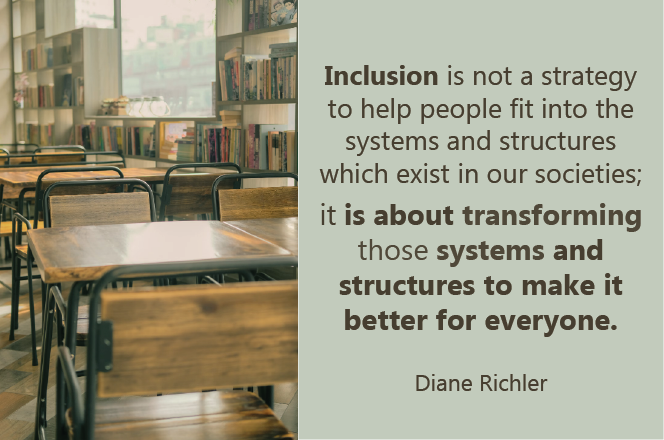Latest News
Summer 2024 | Updates and resources to support inclusive education and post-school success for students with disabilities.
Summer Newsletter
August 13, 2024
The summer winding down and the school year ramping up–Fall will be here before we know it! These shifts in the seasons invite us to make our own shifts in behaviors and practices.
Here at CCTS we are proud partners in Washington state’s Inclusionary Practices Technical Assistance Network (IPTN), where we work alongside OSPI and other agencies to eliminate exclusionary practices in Washington state schools. Despite our state’s progress toward more inclusive practices over the last several years, data reveal that two groups of students remain disproportionately excluded from general education settings:
- Students with Intellectual and Developmental Disabilities (IDD)
- Black students eligible for special education services
The IPTN is committed to improving access to high-quality, standards-based education for students with IDD and Black students with disabilities. By implementing systemic changes that benefit these populations, we aim to enhance the educational experience for all students across Washington state.
This newsletter includes excerpts from a new training module we’re adding to better support students with IDD in CTE courses. It also highlights resources and training that we hope will be helpful as you prepare for the start of a new school year.

Meaningful Inclusion of Students with Intellectual and Developmental Disabilities in CTE
At CCTS, we promote meaningful inclusion for all students. Inclusion in K-12 education is crucial, as it helps students transition smoothly to adulthood and participate fully in the community after high school. Our work within the IPTN supports these goals, ensuring every student has the opportunity to thrive in an inclusive environment.
As part of this work, CCTS is updating our Partnerships for Inclusion: Special Education and Career Technical Education training course by adding a module on Meaningful Inclusion of Students with IDD. This will be available by September 30, 2024.
The following excerpt includes key strategies to promote meaningful inclusion of students with IDD in schools and classrooms, to ensure all students are able to participate in the least restrictive environment.
Strategies for Promoting Meaningful Inclusion
- Classroom Layout: Arrange desks and learning spaces to allow for easy movement for students using wheelchairs or other mobility aids. Ensure all materials can be accessed by all students.
- Inclusive Activities: Encourage students with IDD to participate in extracurricular activities, clubs, and sports to promote social integration.
- Stop Ableism: To create a truly inclusive environment, it is essential to actively combat ableism – the discrimination against people with disabilities. This involves providing training for students and staff on disability awareness and the importance of inclusion, enforcing policies against bullying and discrimination, and increasing representation of people with disabilities in school materials and on staff.
- Professional Development: Ongoing training for teachers and staff on inclusive teaching strategies including Universal Design for Learning and Differentiated Instruction.
- Engage Families: Encourage families of students with IDD to participate in school events, meetings, and to take leadership roles in family organizations.
We can’t wait to have the updated course available this Fall. Stay tuned!
Resource to Support Students with ID in Preparing for College
Designed for educators, this new two-page guide from Think College includes essential information for providing the best support for students with intellectual disability (ID) to consider college. Strategies include:
- Learning about the different college options that are available for students with ID.
- Starting conversations about college with your students and families to explore options and share resources to help them successfully plan.
- Expanding your team to help build support for college expectations.
For details, view Transition to College: Educators Can Make it Happen!
Post-School Outcome (PSO) Data for 2021-22 Special Education Leavers
Are you curious to know about your former students’ education and employment activities after they leave high school? Be sure to check out the PSO data reports available on the CCTS website for your ESDs and counties. If you work for a school district, you can access district-level reports from our secure data collection platform, the TSF2.
Outcomes are disaggregated by exit category, gender, race/ethnicity, disability, and language proficiency.
School districts can use these reports to evaluate the effectiveness of their special education programs. If you have questions about accessing or understanding the data, please send us an email at ccts@seattleu.edu.
CCTS Self-Paced Online Training
Each of CCTS’s self-paced training courses can be accessed free of charge from the CCTS website. Courses include modules and activity workbooks that can be completed individually or with a group.
- Writing Effective Transition Plans (10 modules)
- Student-Led IEPs (7 modules)
- Developing Job Shadow Experiences (4 modules)
- Partnerships for Inclusion: Special Education and Career Technical Education (5 modules)
Visit CCTS’s Secondary Transition Training page for details.
Subscribe to CCTS Newsletters
Stay connected with CCTS by subscribing to our quarterly newsletters.